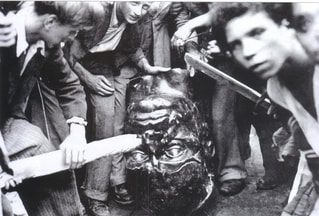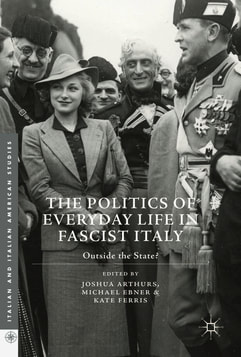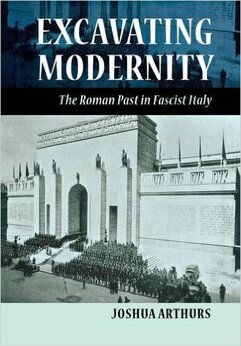Forty-Five Days: Emotion, Experience and Memory after Mussolini
|
My current book project, Forty-Five Days: Experience, Emotion and Memory after Mussolini, explores the collapse and aftermath of the Fascist regime, from the fall of Mussolini on July 25th, 1943 to the disintegration of the Italian state on September 8th. Drawing on sources ranging from police reports and censored letters to memoirs and radio broadcasts, I explore everyday experiences, relationships and behaviors. I look especially at acts of retributive violence, iconoclasm, and public protest to understand how individuals and communities confronted the unsettling legacies of the past twenty years. How did Italians narrate the past twenty years, to themselves and each other? What did Fascism - suddenly consigned to the past tense – mean to them, and how did they explain their own relationship to Mussolini's regime? I am interested in how historical actors tried to condition how the regime, and the moment in which they were living, would be remembered by future generations, and how this in turn shaped postwar Italian memory politics. I also situate the Italian experience in terms of comparative cases ranging from postwar Germany to post-Soviet Eastern Europe to the contemporary Arab Spring. In December 2015, I presented some of my preliminary conclusions to the American Academy in Rome; you can watch the talk here. This book is currently under contract with Oxford University Press.
|
The Politics of Everyday Life in Fascist Italy: Outside the State?
|
I co-edited - with Michael Ebner (Syracuse University) and Kate Ferris (University of St. Andrews) - the volume Outside the State? The Politics of Everyday Life in Fascist Italy (Palgrave Macmillan, 2017). Drawing inspiration from the Alltagsgeschichte school of scholarship on Nazi Germany, as well as related work on the Soviet Union by Sheila Fitzpatrick and others, the contributors seek to transcend elite-driven and cultural histories of the Italian dictatorship and present an account that stresses the experiences, subjectivities, and behaviors of ordinary Italians. At the same time, the volume moves beyond conventional social histories of the Fascist period, which are largely devoted to uncovering traces of anti-Fascist resistance and working-class solidarities. Fascism stayed in power for over two decades not only because of propaganda and repression, but also because of everyday interactions, relationships and compromises that often reinforced the regime’s totalitarian vision. Kate Ferris and I recently presented an overview of the project to the Graduate Seminar at NYU-Florence's Villa La Pietra; the video of our talk is available on their YouTube Channel.
Reviews of The Politics of Everyday Life in Fascist Italy
|
Excavating Modernity: The Roman Past in Fascist Italy
|
My first book, Excavating Modernity: The Roman Past in Fascist Italy (Ithaca, NY: Cornell University Press, 2012), examines the intersection of ideology, history and archeology, and the idea of Rome (romanità) under Mussolini's regime. Fascism's appropriation of the classical past should be understood not as an expression of its theatricality or retrograde tendencies, but rather as a literal and figurative excavation of modernity, an expression of the regime’s desire to regenerate and remake Italians through the Roman imperial virtues of discipline, hierarchy and harmony. Across several case studies – in historical scholarship, urban archaeology and museum display – the book explores the ways in which Fascist intellectuals approached the Eternal City as a blueprint for contemporary life and a source of dynamic values. This vision of modernity also transcended Italy’s borders, as the legacy of Rome’s “universal empire” provided a foundation for Fascism’s conception of a new European order and overseas empire.
Reviews of Excavating Modernity:
|



